Episode 3: IT Talent: Meeting the Changing Needs of Clients
In this episode, we chat with Anna Velykoivanenko, Global Employer Branding Director at DataArt, about the perfect mix of essential tech skills to learn. It’s a fun yet insightful look at the constantly evolving IT hiring practices. We explore key trends in IT skills — past, present, and future — highlighting the shift from local to global talent pools and the growing need for tech reskilling due to rapid technological change. Plus, we throw in a few spicy, unpopular opinions (like how AI should already be doing your dishes by now). Tune in to hear more!
Key Takeaways
✓ Historical Context: In the past, IT investment assessments primarily focused on quantifiable metrics like cost reduction and measurable financial impact.
✓ Current Landscape: Today, evaluating IT investments includes softer elements such as trust, cultural fit, and comfort levels in partnerships, similar to personal purchase decision-making.
✓ Anticipated Trends: Businesses will need to keep up with rapid technological advancements, embrace adaptability, and learn from mistakes to maximize IT value in an ever-evolving landscape.
Transcript
Anni Tabagua: Hello and welcome to another episode of BizTech Forward, the podcast where we delve into technology and business with some of the brightest minds at DataArt. I am Anni from the Media Relations team, and I get to work with these brightest minds every day. So please think of me as your friendly tour guide as we discuss the past, present, and future of tech.
Today, we're discussing IT talent and clients' evolving needs for IT skills. What IT skills were in demand in the past? Where are we now, and where are we going? To help us explore this, I'm joined by Anna Velykoivanenko, the Global Employer Branding Director at DataArt. Anna, welcome to the show. It's so nice to have you here.
Anna Velykoivanenko: Hello, guys. Happy to be here as well. Thank you.
Anni Tabagua: Anna has been leading DataArt's employer branding efforts since 2017. Her team provides full marketing support, including media partnerships, digital strategies, brand ambassadors, events, and internal engagement. They manage communications across 12 labor markets in seven languages, achieving an annual reach of over 20 million people and positioning DataArt as a dream employer. Anna, again, welcome to the show. Thank you.
Okay, we like to structure the discussion between the past, present, and future. So why don't we start, obviously, with the past? Would you please guide us through the past a little bit? What skills would you say clients were looking for in IT talent 3 to 5 years ago?
Anna Velykoivanenko: Well, 3 to 5 years ago might be a weird period to consider. In the last five years, we've experienced COVID-19, which has been a total dealbreaker for most of us and has almost sent many businesses to the ground. I would say let's start thinking about pre-COVID times to be on the safe side.
Now, let's go back to the glorious time when we could still go outside and enjoy our lives—the good old times. Well, I would say that at that time, the IT industry, which is a very broad term for the industry, I would like to specify that we work in custom software development, a subpart of the whole IT sector.
We were working with lots of different clients. The industry was booming, and many clients were looking for team extensions and working on some long-term projects. Many customers were still working on legacy improvements and other stuff that you might not recognize nowadays because the industry has changed so much. So, I would say that back in the glorious 2019, many clients were looking for mainstream skills that provided scalability.
I would say scalability was the IT word of the industry. So, naturally, if we talk about development, those are .NET, JavaScript, Java, DevOps, quality assurance, business intelligence, and project management. And, well, in some cases, clients even wanted to manage the teams themselves because they treated them as extensions of their larger in-house team.
You could hardly find a product manager, for example. A product manager in custom software development work was more of an exotic position, I would say. Coming from the FMCG industry, that was a bit weird because I had to shift my mindset a little bit to that. And I would definitely say that we had fewer people with diverse industry backgrounds.
Basically, those were mainly engineers working with other engineers but on the client side.
Anni Tabagua: Right. So does that mean that back then, in the glorious days, like you say, clients kind of preferred more specialized and narrow skills? There was not much of a mix. So what would you say?
Anna Velykoivanenko: Well, I would say the key thing then was thinking about projects. People were thinking about projects, implying that we were looking for compatibility between professionals to unite them in certain units and deliver the outcome to the client. That was mostly project-based, but I would say that both career ladders were still in demand.
And, I would say that in custom software development, there are several ways how a developer, or any tech professional, could look at his career. So, you can use it as a classical decision tree problem, like in the survey. You know, you have several ways how the events will unfold further on.
So, if you want to become a solutions architect, for example, and you would like to focus more on tech, then you would most likely be a tech-diverse persona, meaning that you would be attracted to different programming languages, libraries, and tools as a toolbox. Basically, you see the technical problem, and you have a set of tools that you would like to solve it with, and you would mostly be focused on that.
Another way to grow is if you're interested in working with people. You might want to become the team leader and maybe later on a project manager or even a mentor. Perhaps you would like to become a community leader in-house and be very specific in your area of interest, whether it's an internet community or something else.
The third way is that you're interested in business. You want to bring the engineering world closer to the customer world. Then, most likely, you would set yourself on the way to becoming a delivery manager or maybe engage more in pre-sales, and then you would become an expert in a certain domain, whether it's telecom, healthcare, life sciences, payments, or something like that.
But I would say that people with narrow and deep expertise, as well as tech generalists, tech agnostics, or whatever we call them, were all in demand. A good sense to look at is still how people achieve their career growth goals in custom software development.
Anni Tabagua: Right. That sounds like there was a balance, but before we get too upset thinking about all those beautiful, glorious days of the past.
Anna Velykoivanenko: That's the fun part about nostalgia; we only remember the good things and always forget everything else. But actually, it's a joke, meaning that I would say that any era in the business or the workforce market is a mirror of whatever is happening in the client's market, in the respective industries of the clients that we work with.
Therefore, I am calling it The Great Glorious Days because then, I would say it was more a problem of scale. People were looking at how to make the same thing but bigger or the same thing but in a different industry. Nowadays, a lot has changed, but I personally find it actually more challenging. At the same time, it's definitely more interesting.
Anni Tabagua: Yeah. So it's a nice bridge to our next part, which is the glorious days of today. So I know. Yeah. What has changed by 2024, by today, you know, like what skills are in demand now? What is the stuff that you would really like to pinpoint and highlight?
Anna Velykoivanenko: Well, I'm not exactly a professional in skills management. I'm done with work and learning and development. Therefore, I would maybe speak about the same thing, maybe one level higher, on the demand and supply level of talent and customer needs. Yeah. So, I would say that the shift in the demands that our clients are experiencing is definitely fueled by the need for digital adoption and innovation because we understand that the custom software development industry works to help our customers grow and deliver business growth via digital transformation and innovation. This is our bread and butter.
This is why we are all here. This is why people actually want to work with us. And I think that whatever we put in the word digital transformation or innovation is the same, and that can be reverse-engineered into the skills in demand. Customers grow their businesses in products; they understand their products and services, and the competition for consumers in their respective market is driving whatever is happening in our market, and the competition there is quite fierce.
We can see that many industries have to reinvent themselves, and there are many disruptors in certain industries. We see the rise of platforms and startups, and many things are now being automated. Consumer needs are shifting, and how we can deliver them is also changing. Therefore, I think that customers are looking for partners who can bring innovation, prototyping, experimentation, and hypothesis-based development to the table.
They need close collaboration with us to create the product implementation roadmaps they're looking for. It's not specifically skills per se, but the people for the job. I think that it's in many ways up to the teams to define their toolset and how exactly they want to do it. I see more than one way companies can actually do it.
So, for example, if we're talking about the transformation of a process, you can go in different directions. You can do it with AI, for example, if you're an expert in AI, or maybe you have amazing process engineers who can recreate the process itself and make it much more efficient in some other way. I think that the question is whether the customers are also looking for ways to propel themselves into the future because they are not only competing with other competitors but also looking at how to recreate their industries.
We are talking about industries like retail, for example, financial services, media and entertainment, and so many others. These industries are all about the level of service that they provide to the customer. So we need to understand how we can rebalance our skill sets and our engineers' skill sets to improve customer experience.
We need to build these bridges on how we can differentiate ourselves from the market and how our clients can differentiate themselves from their competition via the digital experiences that they're creating, basically, the things we are creating for them. So I would say if we need to bring it to the level down, we need to be experts in data.
We need to understand modern AI, we need to understand clouds, and we need to be experts in product management and UI and UX because this is the essence of how modern businesses win their customers, and this is how we can add on to the SaaS and be the real partners for progress, for outreach.
Anni Tabagua: That makes a lot of sense. And it just makes me wonder, where does geography come into play here? How important is it that clients probably don't hire locally anymore? We're all so global. Can you comment maybe on how much more global it is? And what does it even mean?
Anna Velykoivanenko: Well, I think that the software industry was one of the pioneers of remote work and globalization in terms of the fight for global talent. And I would say that we have experienced it firsthand. I would say that the global expansion of various digital transformation companies started way before it started for many other industries, and we were actually the ones who were prepared for it.
I remember even during the COVID ban; it was we who taught our clients how to manage their remote teams because suddenly, everyone had become remote. So I would say that the context is king in this particular case because I cannot say that we have one trend that is universally true to everyone because, well, employers are hiring both internally and externally.
Let's not forget that we also have huge internal markets within every company. If we're talking about companies with more than 1000 people, that means they do not have to run to the market to recruit for every position or every skill; they also have an internal market. This is why we have global mobility programs.
If you need people to move around, this is why I hope that most employers have heavily invested in cloud-native solutions for collaborative work, asynchronous comms, and stuff like that. But I would say that at the moment, context rules it all because there are so many ways to solve one problem.
But definitely, at the moment, the power is on the employer's side because of the shifts in the markets, because the markets are fluid. I would say that employers nowadays have more bargaining power than at some points. But at the same time, we also have other huge meta-trends that are influencing us.
For example, global remote work is here just after COVID-19; it is not going to disappear suddenly. For some professionals, this is the only option that they are actually agreeing to because they have built a lifestyle, and they do know that there are a certain number of employers who will definitely employ them.
So, I would say hiring locally or globally is not always a definite answer. It will depend on the industry, the country, and the skill set that you're looking for.
Anni Tabagua: Yeah, you summed it up perfectly in one sentence. I really like it. I'm taking it with me. Context is King.
Anna Velykoivanenko: Yes, it is. Yes, yes. Even when you try to browse the news, you become very anxious because you're not sure what is going on. On one hand, we have 'let's go back to normal' in the UK, in the private sector, where slogans everywhere say, 'Yes, let's go back to the offices and let's fill the City of London with people in suits again.'
On the other hand, we have thousands of layoffs in different countries in the tech sector. On the other hand, we see huge M&As that companies are going through. And the people who were laid off yesterday are getting calls from the same employer but under different flags, or after the M&A, they've been offered their job back, or, for example, they are being offered the same job as a contractor.
But again, it depends so much on corporate strategy. So, I would say that we are still in the very interesting part of the change that is definitely happening. And I think that the AI revolution is definitely going to shoot it more because the world gets both smaller and bigger at the same time. We now have access to many tech professionals everywhere.
On one hand, we have the rise of payment systems that make it possible to collaborate with them. We have legal harmonization. But on the other side, we have risks. Legal compliance, security, and business continuity risks limit us. So, I would say that it's a pendulum that is going back and forth.
We'll definitely land somewhere. It's interesting to see where and how the future of work will look.
Anni Tabagua: And yeah, real quick, before we jump into my favorite part, also known as the future, I want to mention technology. And I just wonder because technology just keeps evolving. We can barely keep up. It's impossible. So how important is it? Like, where does quality of work stand here? How important is reskilling, for example?
Anna Velykoivanenko: Well, I think that if you are in the people's business, meaning that if your business model is in any way dependent on the quality of service, on collaboration, or on creativity, then yes, it is important. I would say that reskilling is extremely important. I have already had several careers within my lifetime because my degree is not related to this thing that I actually decided to pursue in my career.
I got a diplomatic degree, but I decided I wanted to pursue a career in marketing. Then, I worked for several years as a brand manager and had nothing to do. Then I decided I wanted to explore the world of tech, and it just goes on and on, and I think it is impossible without reskilling.
I think you cannot continue without continuous learning in your life if you want experience. I'm not sure how exactly this necessity for reskilling will impact us in the future, but I am sure that it will empower us and reshape the skillsets that we're using.
But I am one of the optimists. I think that this reskilling is actually a good thing because I definitely want AI to do my dishes and do the mundane part of my work. But I would like to keep my music, poetry, and all the artistic pursuits to myself. So we should see how it works.
Anni Tabagua: It's very nice to be on the same page with you. So, jumping to my favorite part, as I always say, is predicting the future. Could you briefly outline what you think will be most important in the future regarding the topic we're talking about?
Anna Velykoivanenko: I was thinking about what kind of technologies that can be. You know, I'm a research geek. I always try to read consumer trend reports. I mean, if we trust the scientists, if we do trust them, the mainstream skills that are going to be the centerpieces of success in the future are going to be.
And those are creativity, resilience, and leadership. As you can see, none of them is a hard skill. This means that I'm afraid the future doesn't hold any simple answers to tough questions. For example, in the golden era of the 20th century, people who started an Oracle integration project in their company were safe, you know, for their whole lives because those projects would run for tens of years.
I'm afraid we're past that. None of the skills are hard skills. You cannot really learn them by reading a book, taking a course, or having a certification. What will it mean for employers and what will it mean for our clients? I think that it would mean that we will need to learn how to think about it holistically, and we will need to understand how to invest in people and partnerships and how to give those things opportunities.
Because sometimes it is a matter of faith and the bargain that you know you are there, you hire a junior hoping that this person will eventually become your next CMO or chief innovative officer. And you never know, but I'm sure it is worth it. And I'm sure it is about the values and how we click or don't.
I believe that a good partnership is always a two-way street. So far, the best partnerships that I've seen with our clients and with the best talent that we managed to retain for years at DataArt actually work. They involve mutual respect and mutual investment in each other.
Anni Tabagua: Absolutely. Before we wrap up, I'd like to end this maybe on a little bit of a spicy note to invite our listeners to think with us. I like to call this section an unpopular opinion. So, have you got any unpopular opinion regarding this that you would like to share that comes to mind?
Anna Velykoivanenko: Yeah. I think I have quite a lot of them. And yeah, but not for the sake of just trying to be special or anything. It's just that I like a good debate, you know, it's like a treat for the mind to look at the same subject from different perspectives. And I am a brand person.
I'm not a recruiter, so I understand that my opinion might be a little bit off from the channels. But I believe that very often, in our group and selection process, whether it's a partnership, a vendor, or, for example, a recruitment process, we focus too much on past achievements of people from different companies.
We disregard completely the potential, the potential that might not be quantifiable at the moment, that this person, this team, maybe this company, or this partnership might be built to reshape our perspectives. I truly believe that if we create innovation, it's. Well, Gartner and our biggest clients speak about the same thing.
We want innovation, more creative leadership via tech, and so on and so forth. If we want this growth, we cannot rely exclusively on the old tools and tricks. We just can't because, well, I'm afraid that they have an expiration period. This is how we actually try to hire into our team. To the employer branding team, we do not require specific experience in employer branding or even in tech; we do not ask people for certifications or degrees.
We're trying to understand people's hard skills, as well as their level of energy, authenticity, and vision. I believe that we want to partner for progress. This progress might come in different shapes and forms, and I believe success can be different. However, true success, I believe, comes from a true partnership with trust and mutual belief in our own creativity that we can create together.
Anni Tabagua: Oh, I love this. What a great note to end this on energy, authenticity, and vision. This. Yes, yes. Yeah. Thank you so much for your insights today. It's been a pleasure to talk to you, and thank you to our listeners. If you like this episode, please subscribe, rate, and follow us for more. We always want to hear from you.
If you have thoughts, questions, insights, or opinions of your own, please reach out to us at biztechforward@dataart.com. Thanks again, and until next time.
Anna Velykoivanenko: Cheers.
About the Guest
Anna Velykoivanenko, Global Director of Employer Brand at DataArt, with 15+ years of brand management, leads a team spanning 12 markets, winning 10-20 awards annually for exceptional Employer Branding.
Check Out All of Our Episodes
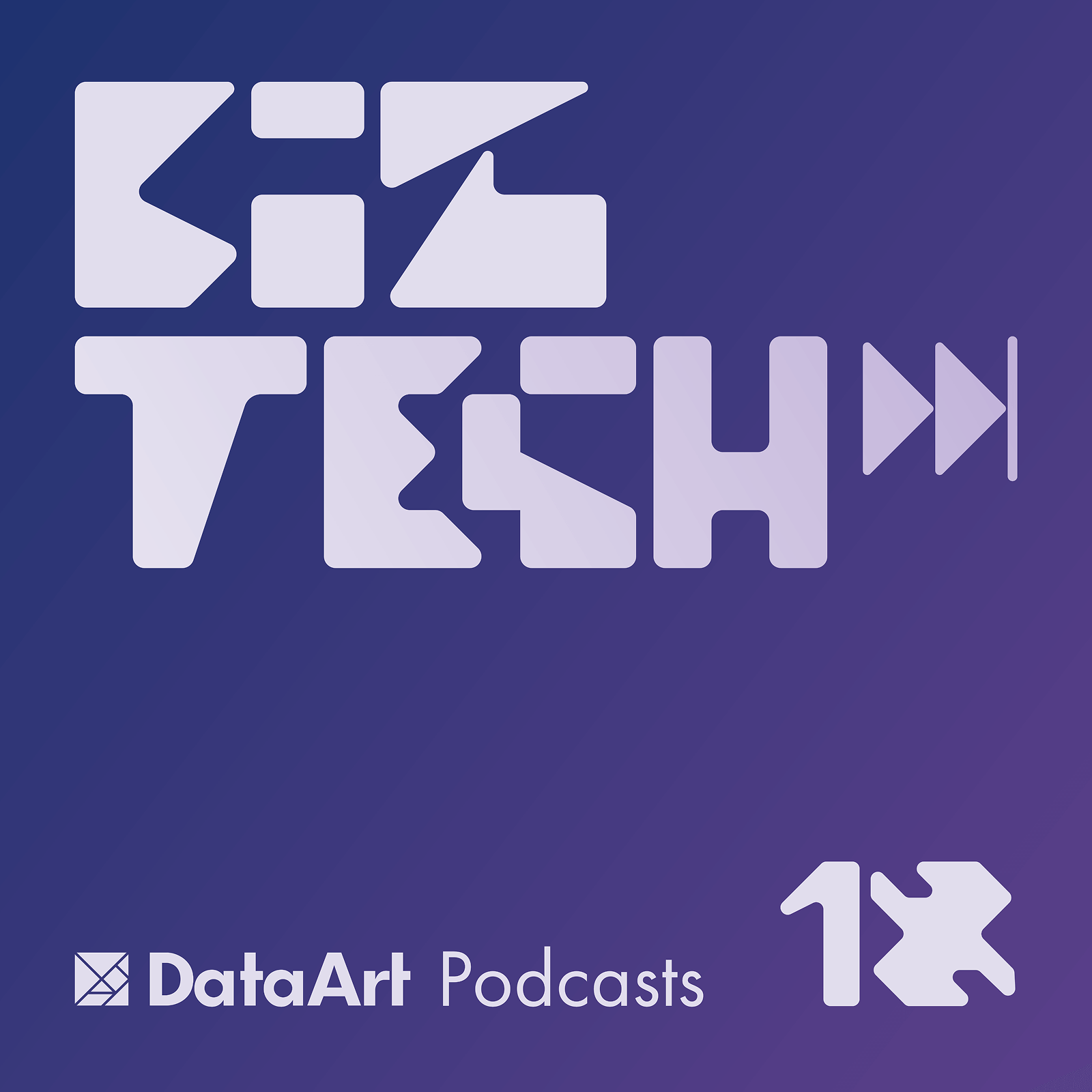
AI is supposed to be revolutionizing retail. Personalized recommendations, seamless checkout, virtual try-ons — the whole pitch. But if the technology is so good, why are physical stores still packed?
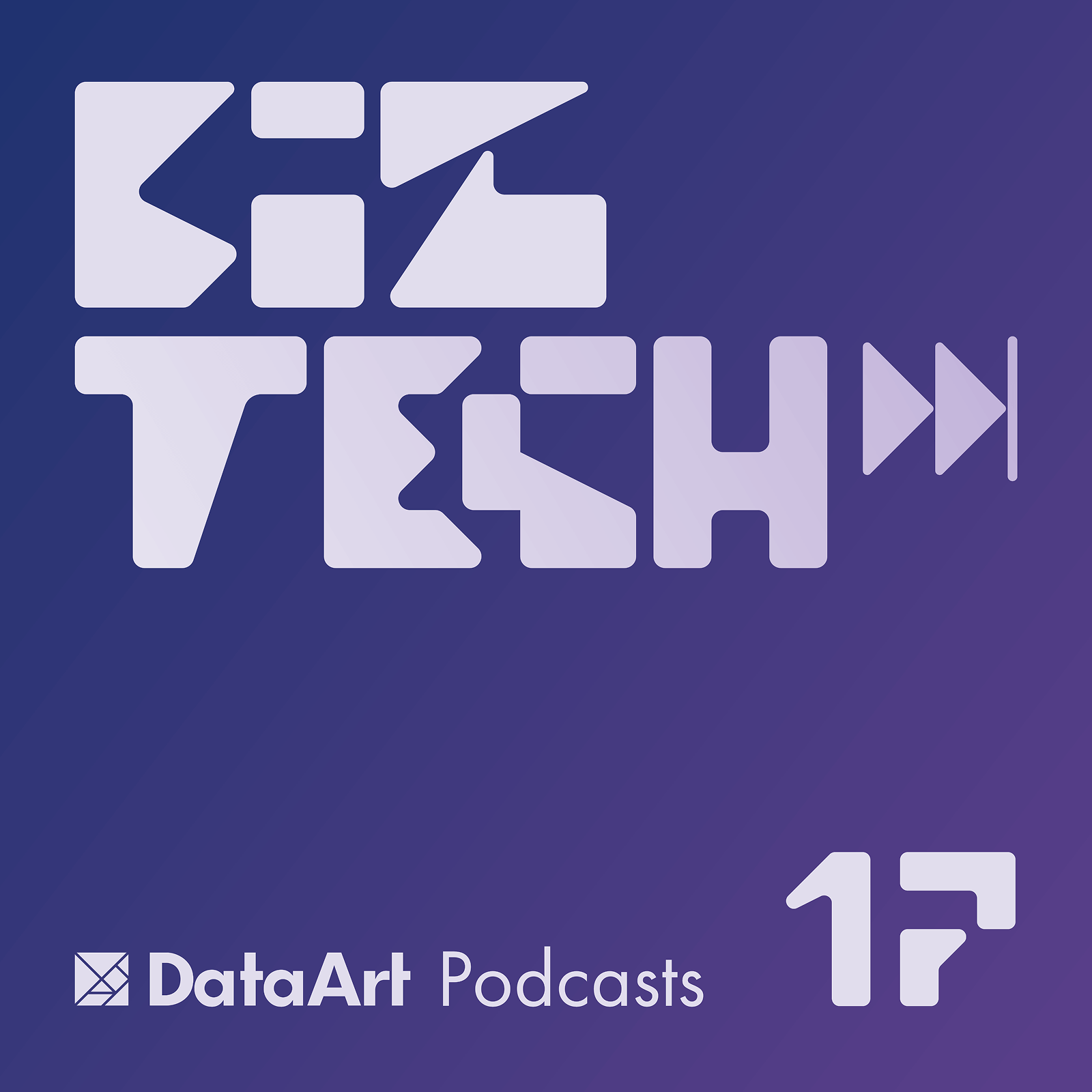
In this episode, Anni sits down with Alistair Wandesforde, SVP at DataArt, to see what companies say about their AI capabilities and what's really happening on the ground.

Season 2's most controversial moments! Eight tech leaders share their unpopular opinions on AI, recruitment, learning culture, market competition, and more.

We wrap up Season 2 with episodes 13-16! Featuring Doron Fagelson's fascinating look at how data is transforming art commerce, Greg Abbott's insights on the tech behind your next trip, Olesya Khokhulia on enterprise partnerships beyond just delivery, and Alexey Utkin's brutally honest conversation about data reality.

Join host Anni Tabagua for a Season 2 recap covering episodes 9-12! Featuring discussions on evolving client expectations, scaling learning culture, Latin America's tech boom, and the current state of tech talent.
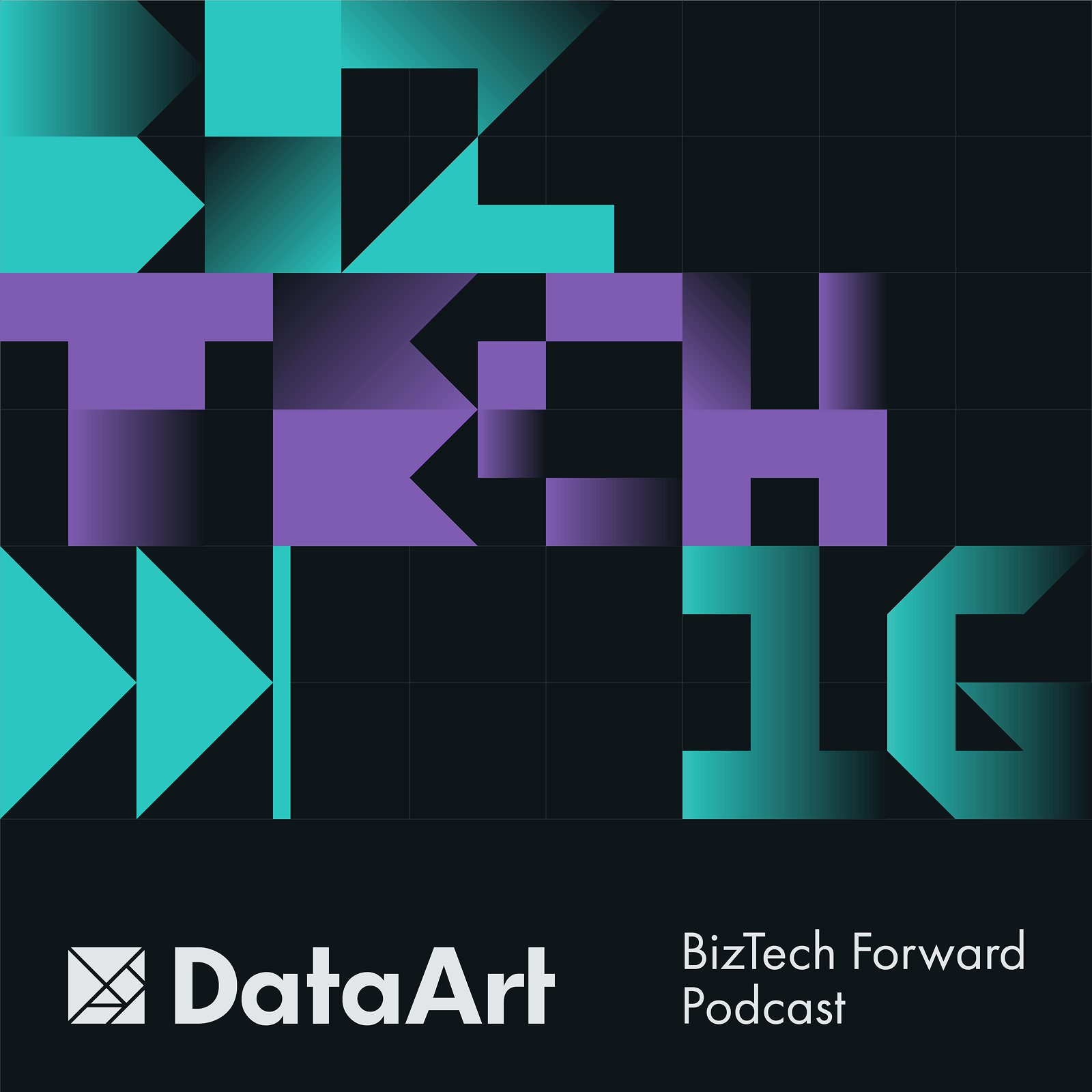
In this episode, Anni sits down with Alexey Utkin, Head of Data and Analytics Lab at DataArt, for a candid conversation about what’s really going on in the world of data.
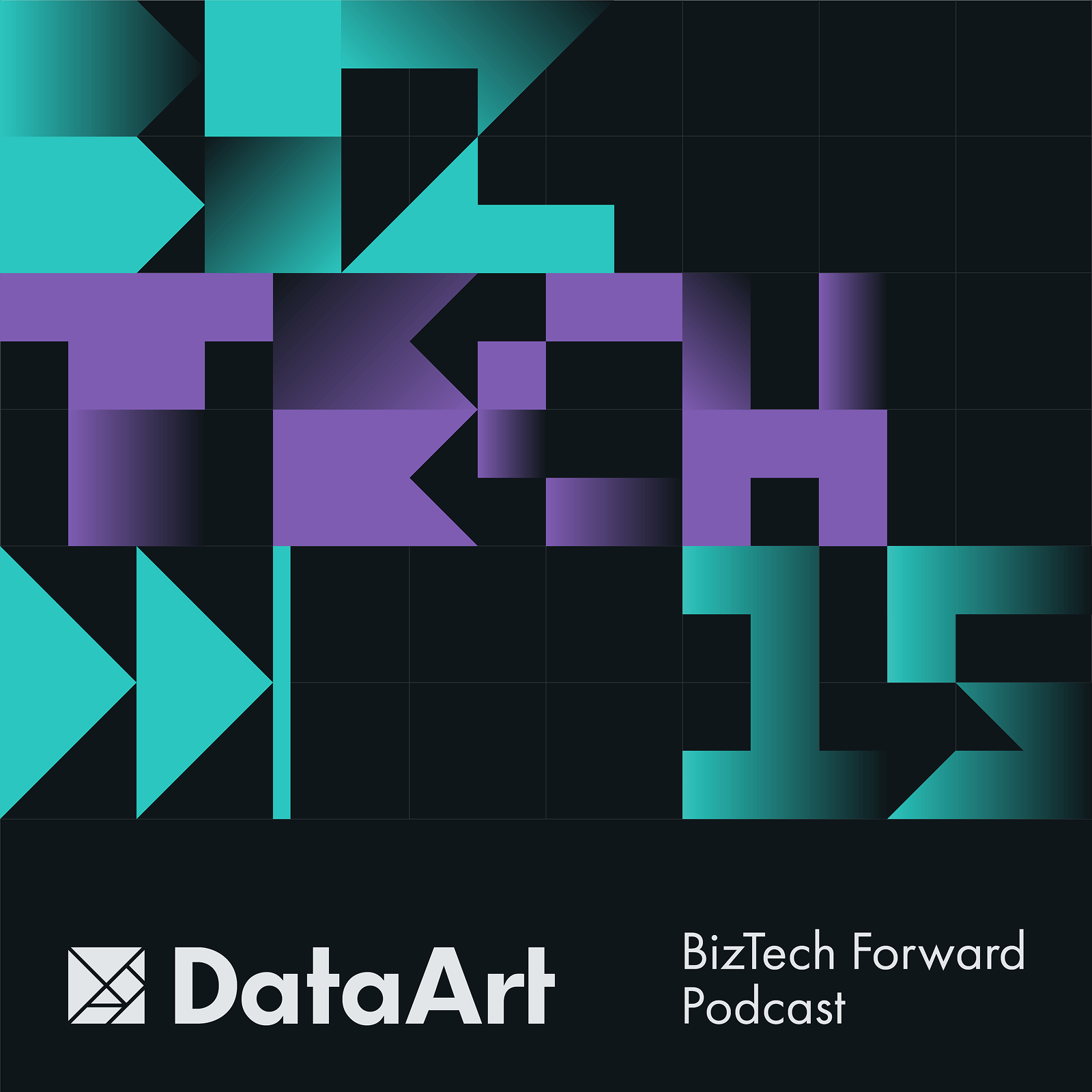
In this episode, Anni speaks with Olesya Khokhulia, VP of Global Enterprise Accounts at DataArt, about the evolution of client relationships, the quiet signals that build trust, and what it takes to stay relevant in an environment where expectations are always shifting.
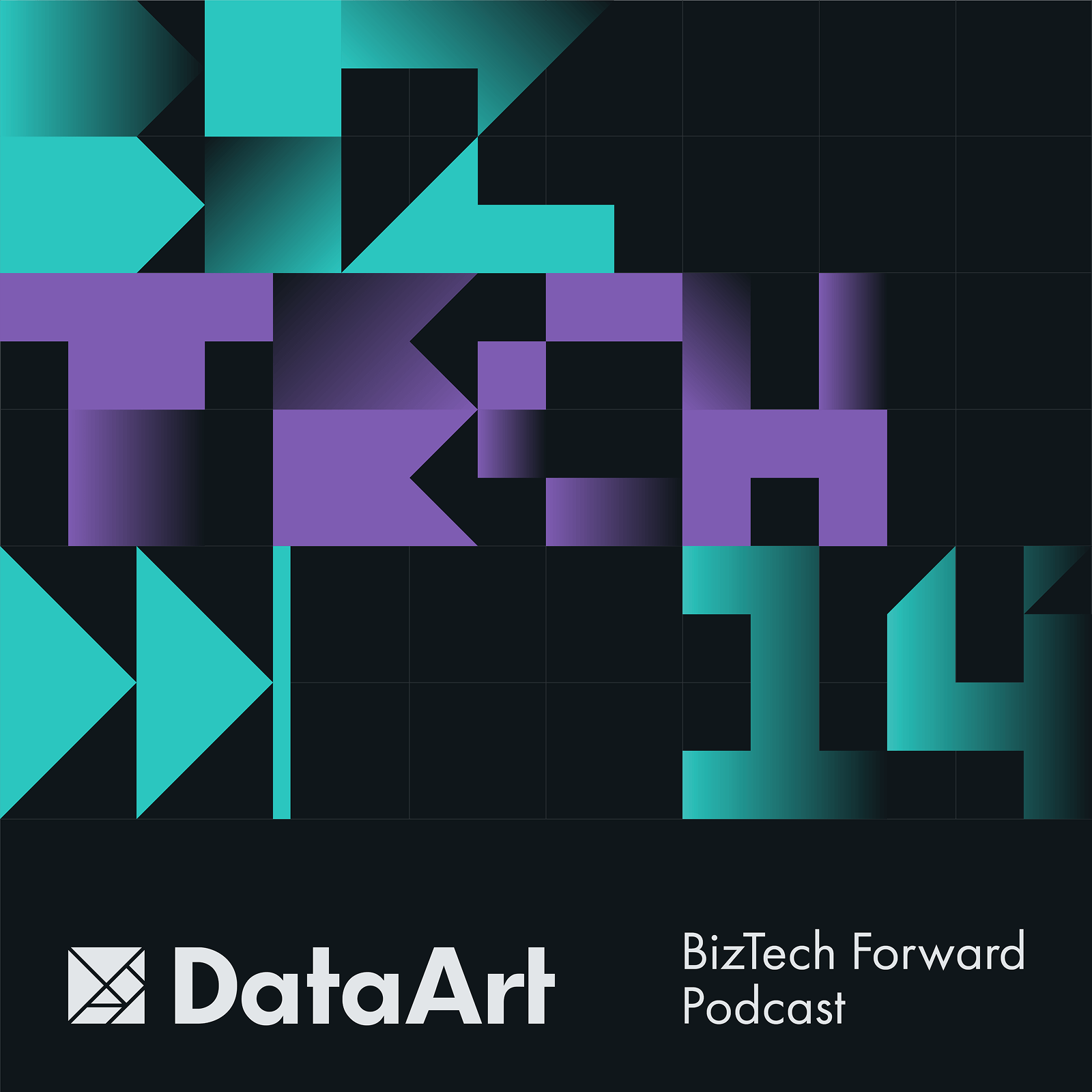
Travel is back — but it’s not the same. In this episode, we sit down with Greg Abbott, a veteran of the travel tech world with over three decades of experience, to talk about how the industry is evolving.

From ancient artifacts to AI-curated collections—art is evolving, and fast. In this episode, host Anni chats with Doron Fagelson, SVP of Media & Entertainment at DataArt, to explore how technology is transforming the art world, from online marketplaces to data-driven personalization and virtual galleries.

In this episode, host Anni chats with Julia Zavileyskaya, Chief People Officer at DataArt, about the biggest hiring trends, AI’s role in recruitment, and what really keeps employees engaged." Please find the episode's cover attached.
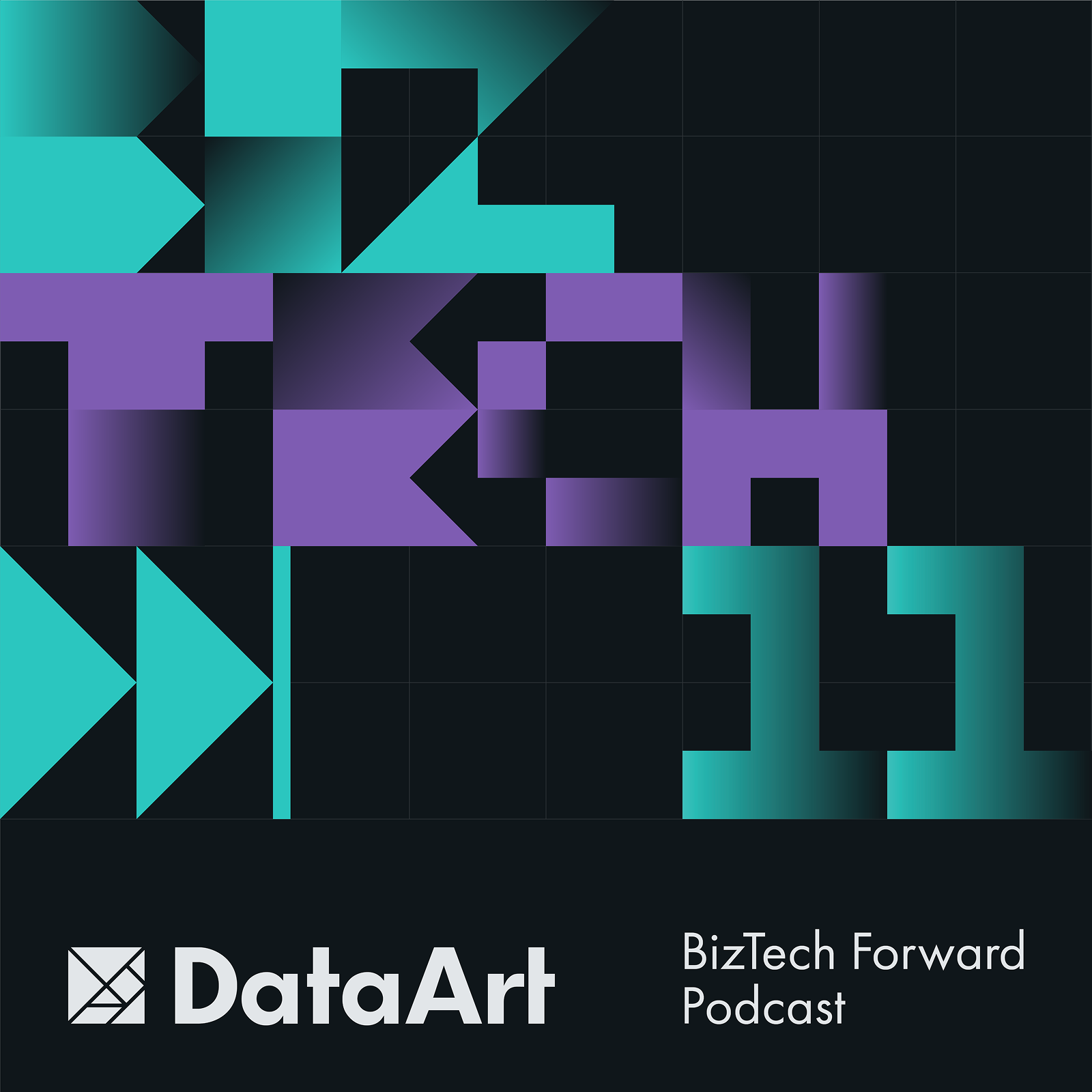
In this episode, Anni sits down with Marcos Mauro to discuss what’s fueling Latin America’s tech boom, how businesses and clients are adapting, and why it’s more than just an emerging market — it’s a global leader in the making.
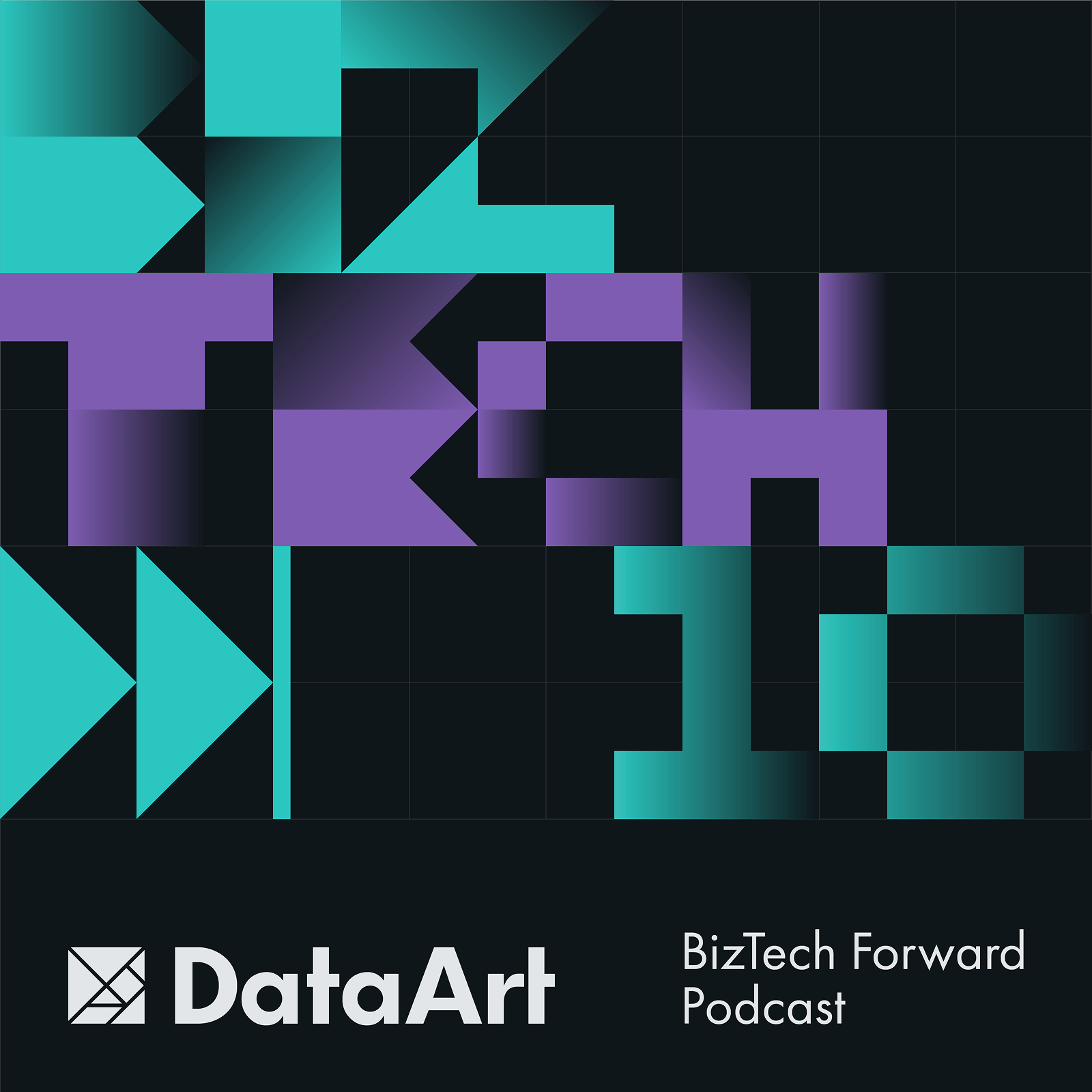
In this episode of BizTech Forward, Anni chats with Maryna Melnik, Head of Learning and Development at DataArt, about how companies can create a culture of continuous learning, scale it across thousands of people, and deliver real business value.
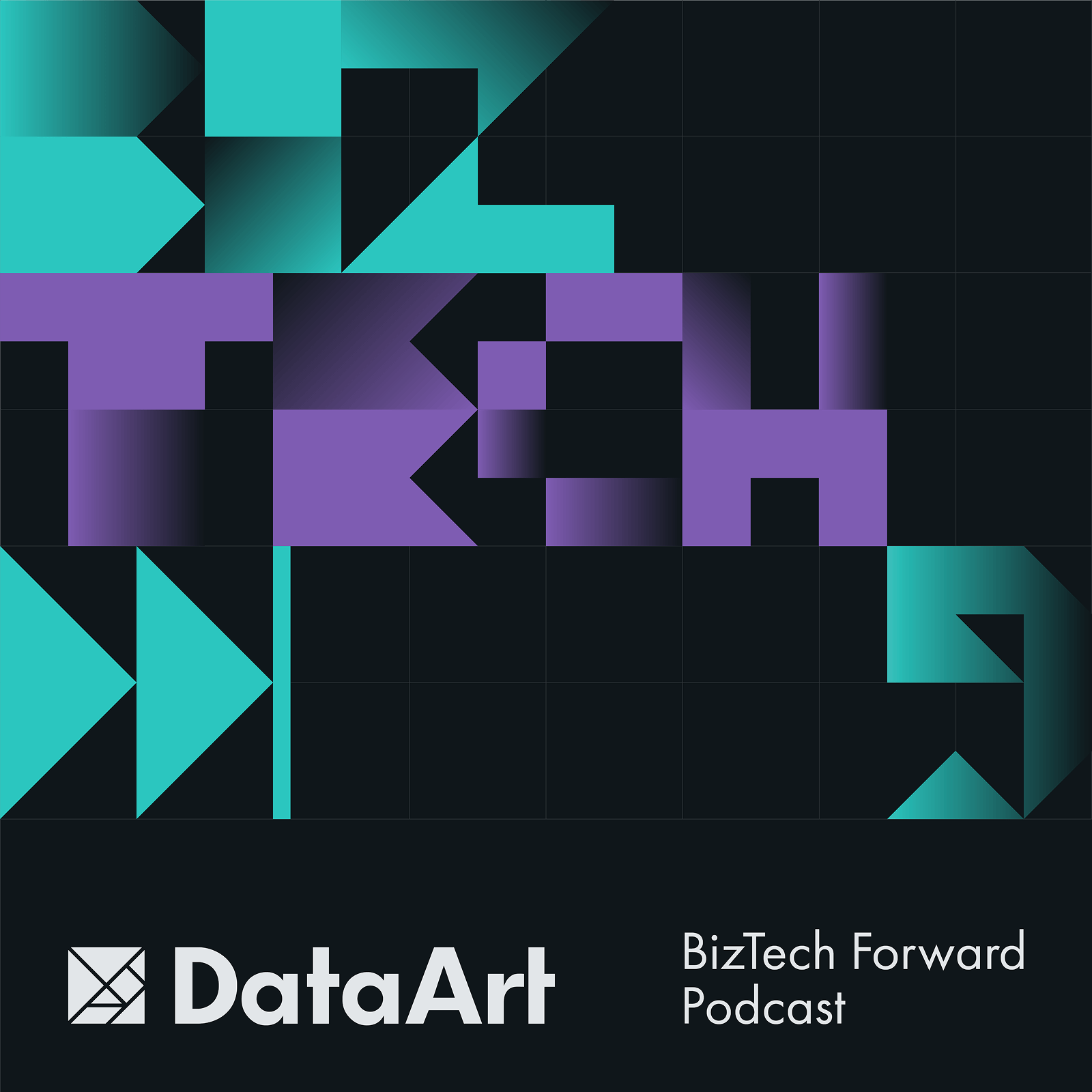
In this episode of BizTech Forward, Anni sits down with Mike Peterson, Advisory CTO / CIO, Mentor, and Coach, who discusses how client expectations from IT vendors have evolved over the past decade, what clients miss from the ‘old days,’ and how vendors can stay ahead in an ever-changing tech landscape.

This is a bonus episode of BizTech Forward: Season One Recap. Host Anni takes you through the eight episodes of the debut season, highlighting some of the best moments and setting the stage for season two!
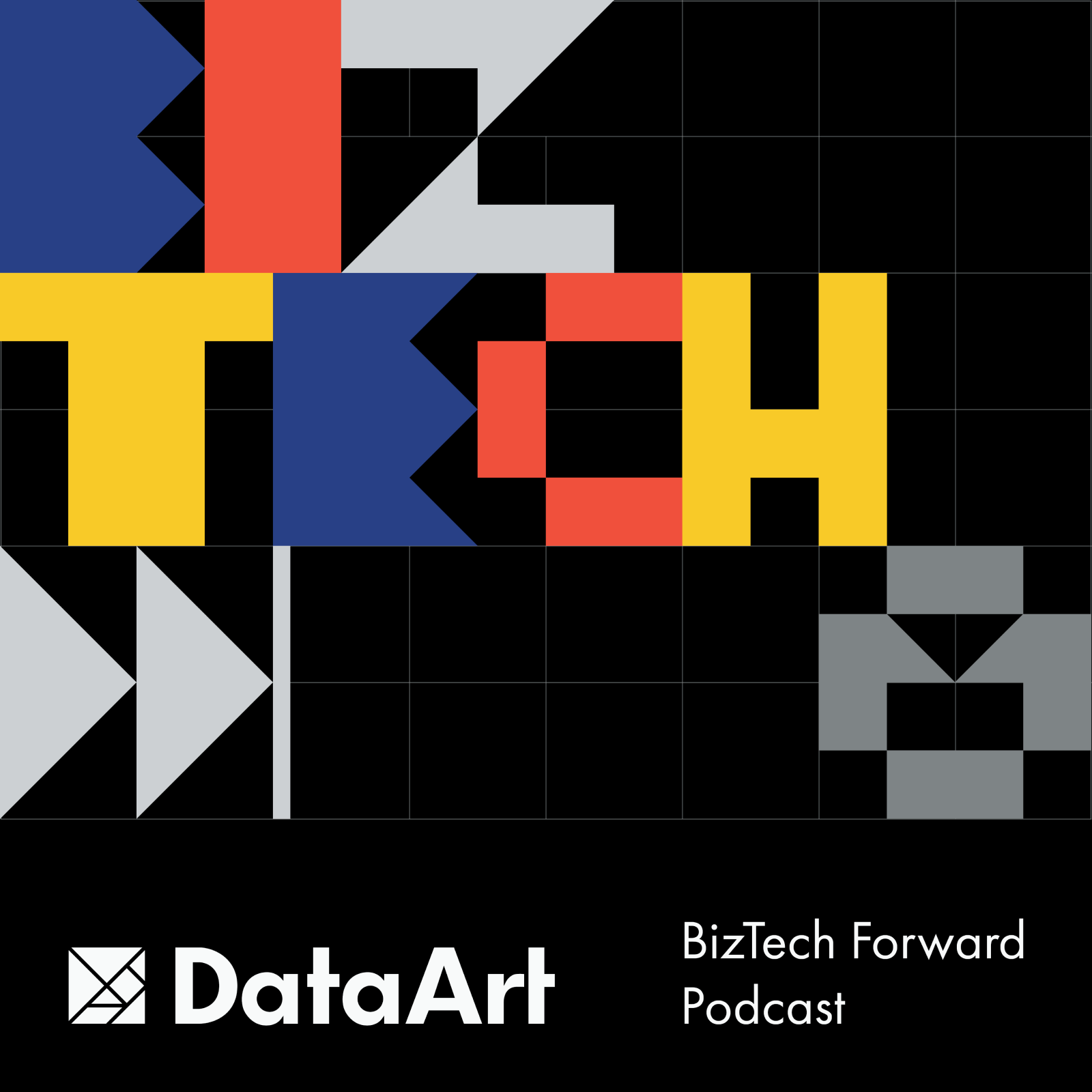
In this episode of BizTech Forward, Anni chats with Scott Rayburn, VP Marketing at DataArt, about how marketing has evolved with the rise of data and technology.
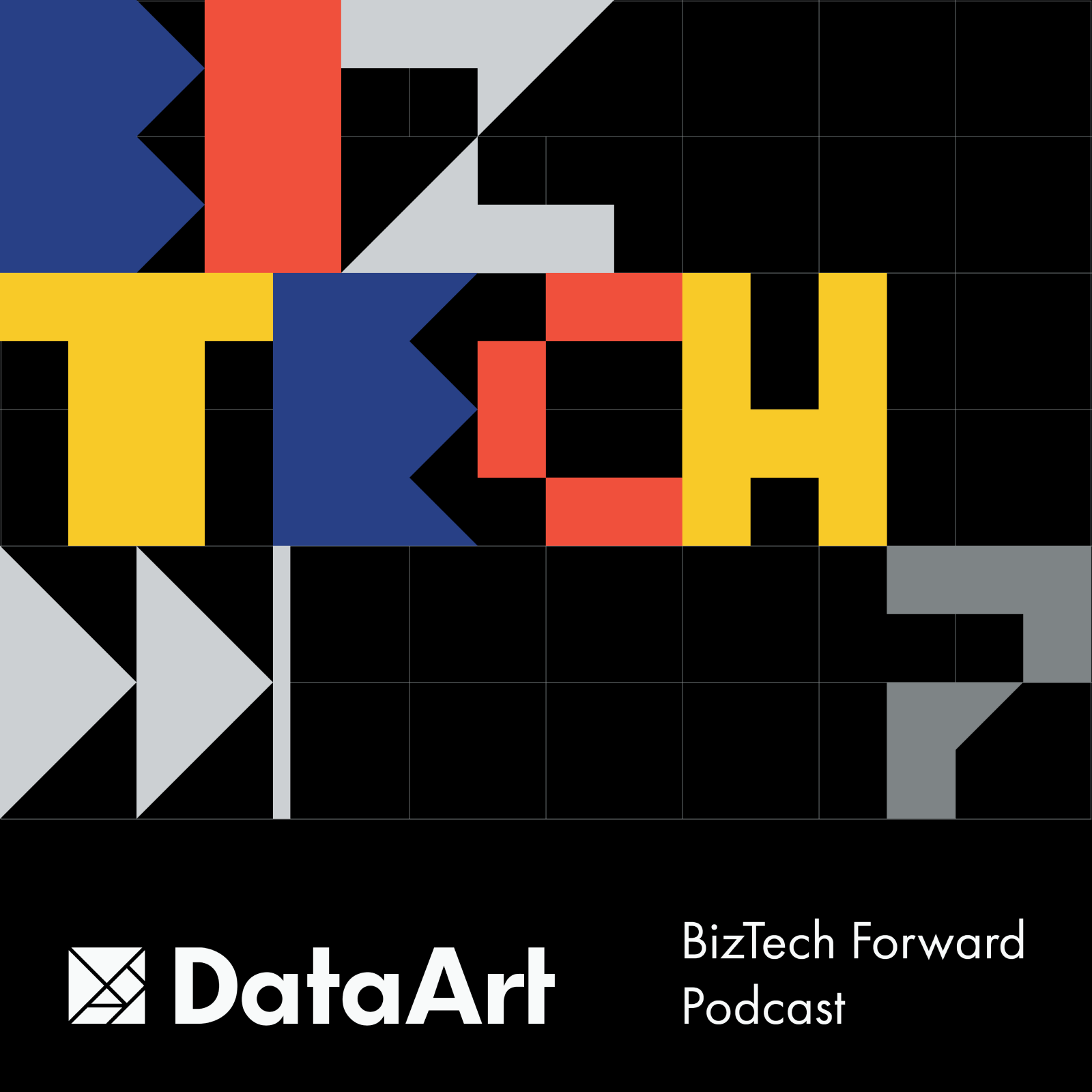
In this episode, Anni chats with Sheetal Kale, Head of DataArt India, about the country’s modern tech views, AI and data, IPO boom, and India’s gravitational pull in global decision-making.
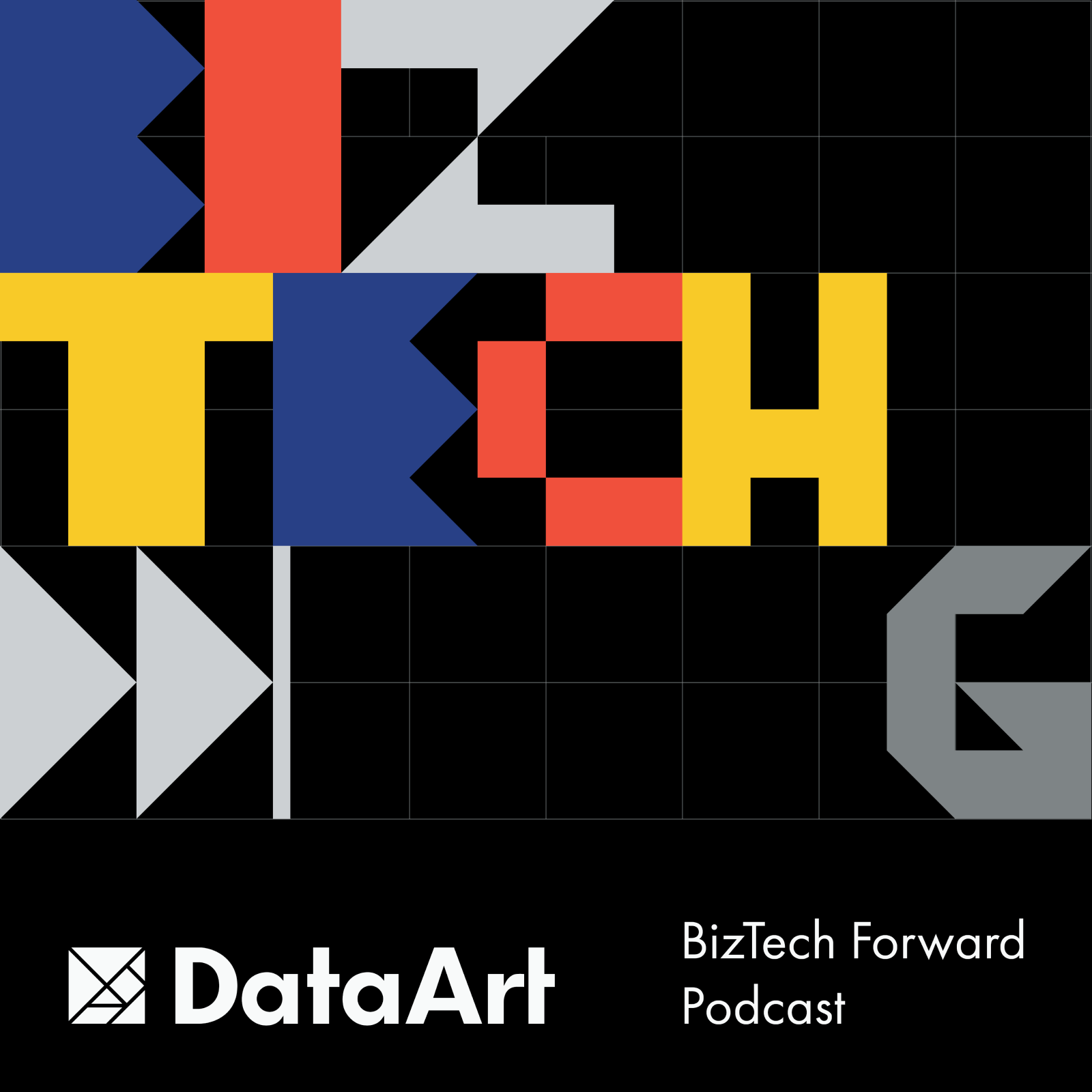
In this episode, we're joined by Tim McMullen, a true veteran in aviation tech, to discuss the latest aviation technology trends from the latest industry conferences and the future of aviation.
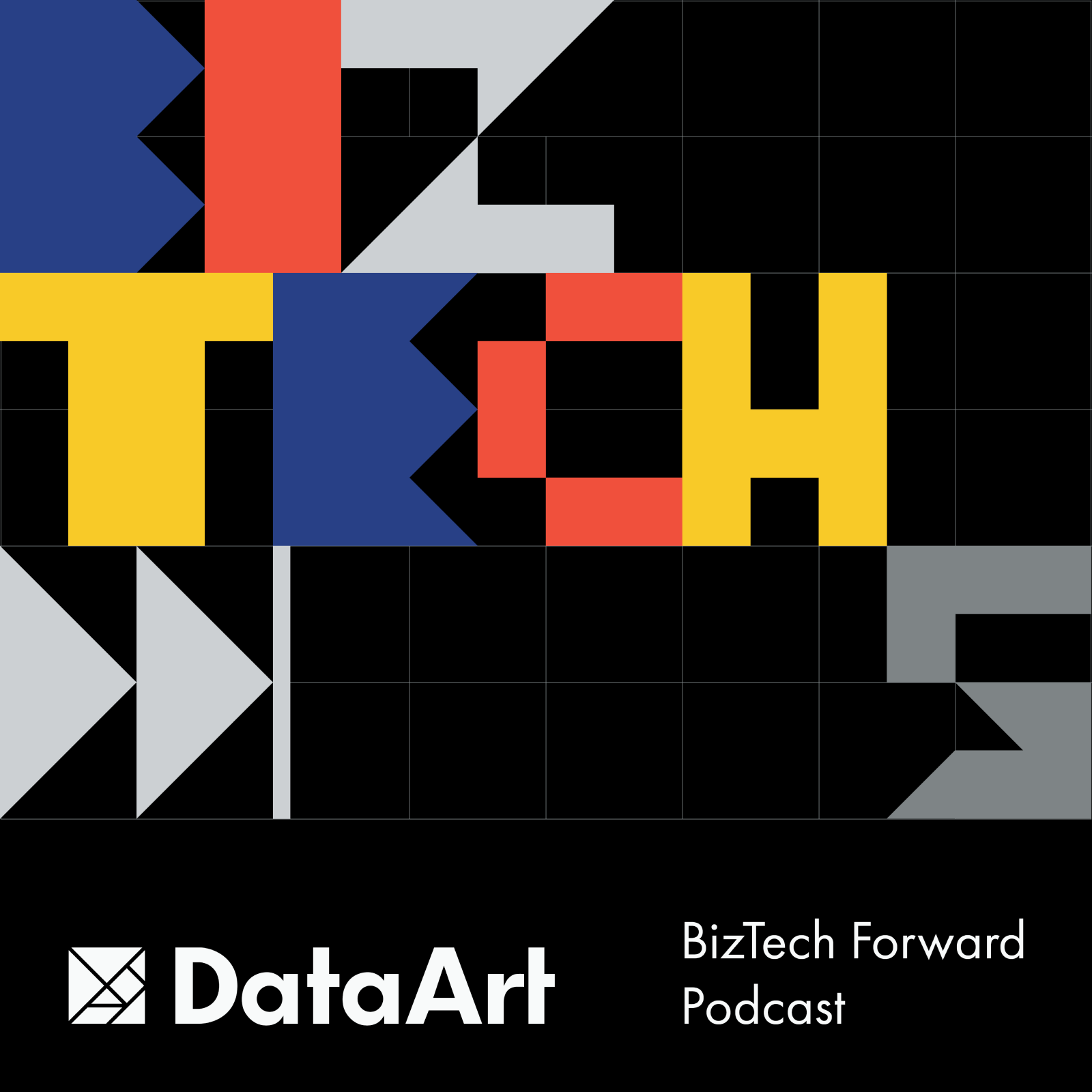
In this episode of BizTech Forward, Anni sits down with Anastasia Rezhepp, DataArt's Head of Design Studio, to talk about the evolution of design processes in the world of UX.
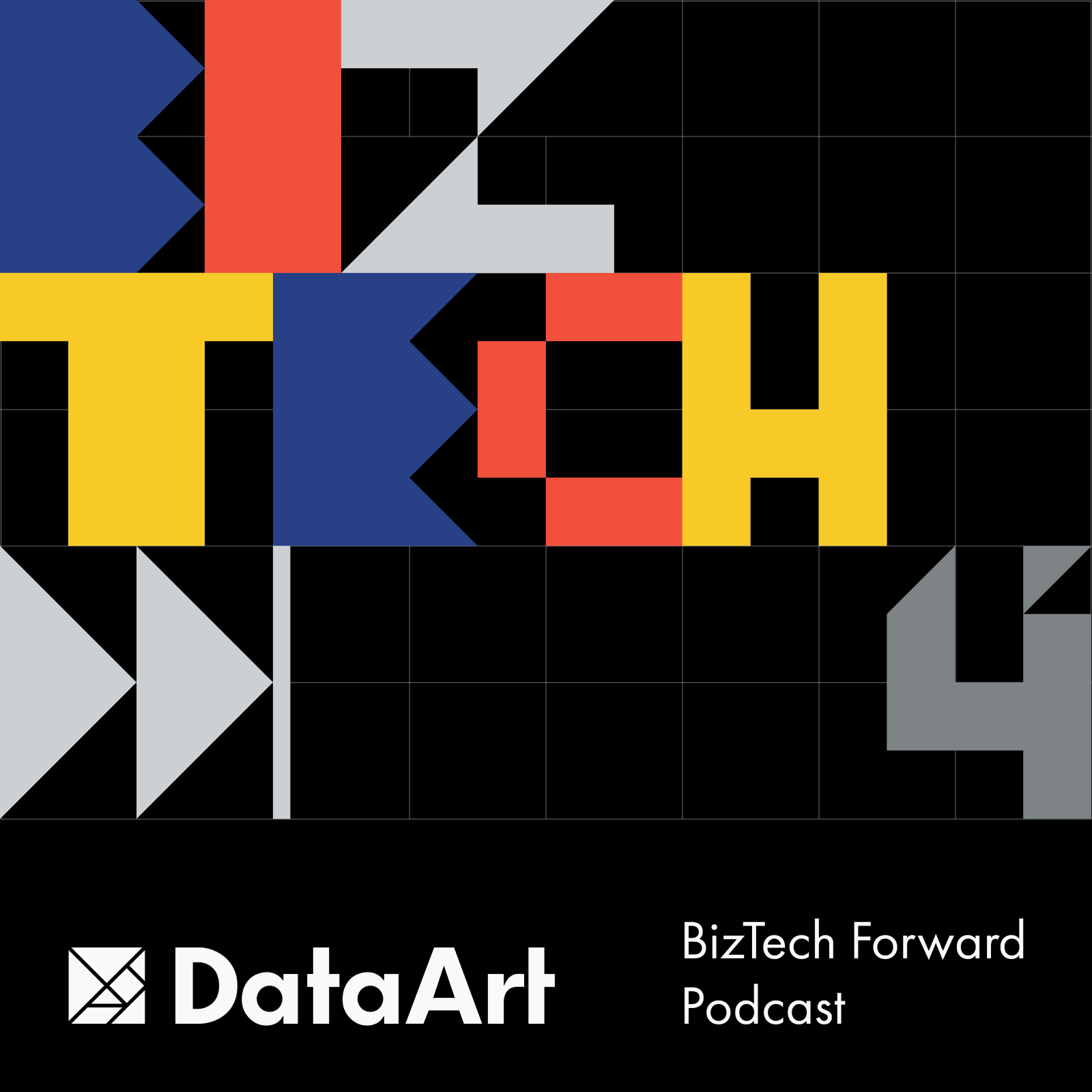
In this episode of BizTech Forward, we chat with Yuri Gubin, Chief Innovation Officer at DataArt, about why data quality is critical for AI success.

In this episode, we chat with Anna Velykoivanenko, Global Employer Branding Director at DataArt, about the perfect blend of technical know-how and human-centric skills.
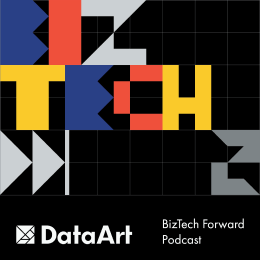
In this episode of BizTech Forward, Anni from DataArt’s Media Relations team chats with Alexei Miller, Managing Director at DataArt, about how businesses can truly measure the value of their IT investments.
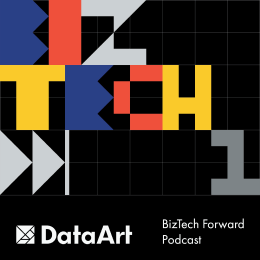
Join Anni Tabagua as we kick off our very first episode with a fascinating topic: AI in Automotive. Our guest is Dmitry Bagrov, the Managing Director of DataArt UK!
We Want to Hear From You!
Reach out to us with any comments, feedback, and questions by filling out the form.

Thank you for contacting us!
We will be in touch shortly to continue the conversation.








